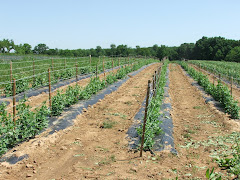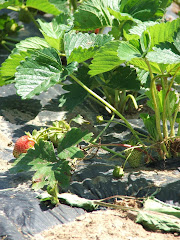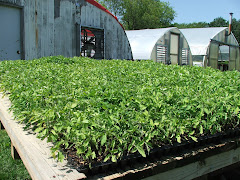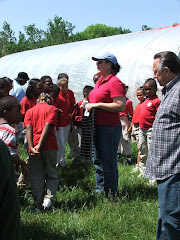Countless CSA members have praised the freshness and flavor of local organic produce. From my own experience, the first time I enjoyed fresh corn from Maryland's own One Straw Farm, the taste and texture were so rich and flavorful that I felt as though I was eating an entirely novel and unfamiliar food. Conventionally grown crops, in contrast, are typically bred (either via hybridization or transgenic lab technology) for long-shelf lives, uniform size, pest resistance and durability over long and bumpy transport. As a result, conventional produce is often comparatively bland.
You may find that fresh organic produce spoils a bit earlier than their conventional counterparts. To preserve freshness and convenience, wash and store your greens as soon as you get home. Consuming them earlier in the week will minimize nutrient loss over time.
Some CSA members have endorsed GreenBags, which reportedly prolong freshness. I haven't yet tried them myself, but anything to minimize food waste is probably a worthwhile venture.
Discarded organic material heads to a landfill, where the decomposition process releases methane, a potent greenhouse gas. If you find yourself discarding organic material and you don't have a composting system of your own, you can bring it with you the next time you head to Whole Foods by the harbor, where you can drop it off in a compost bin (no sense making a special trip to drop it off, lest you negate the environmental benefits by driving). Storing it in the freezer works well (frozen compost, I know, sounds weird - but it won't smell or attract insects, and a full fridge/freezer actually uses less energy).
Recommended resource: How to keep your vegetables fresh






No comments:
Post a Comment